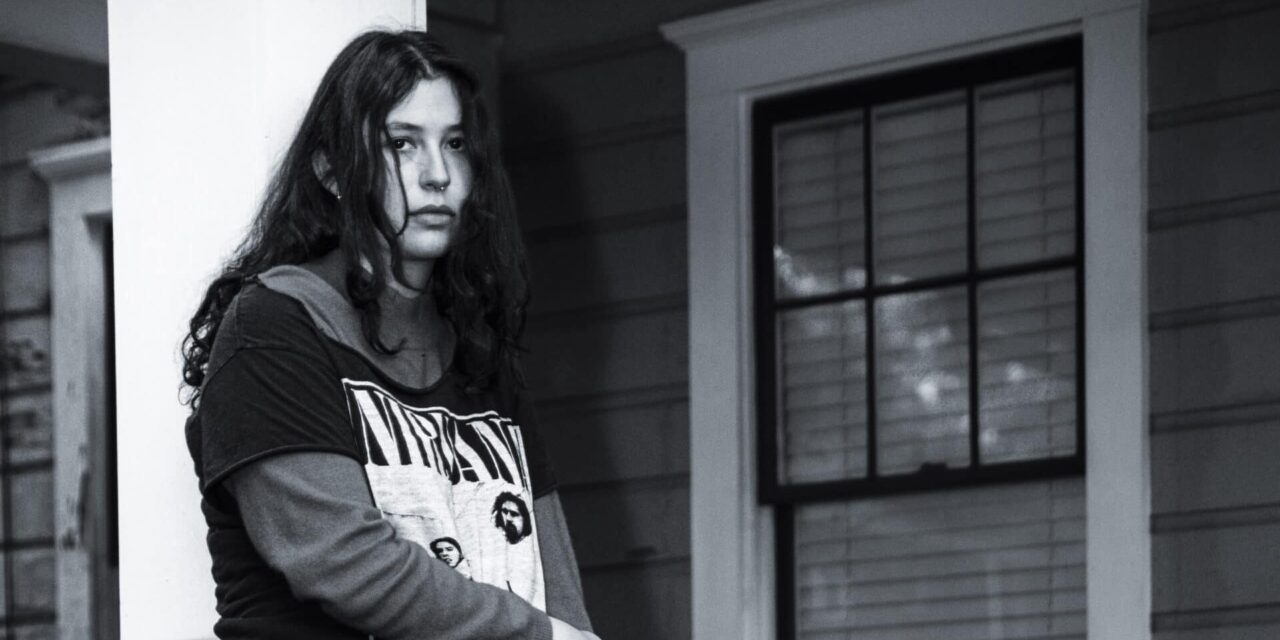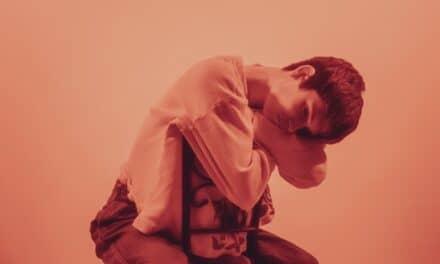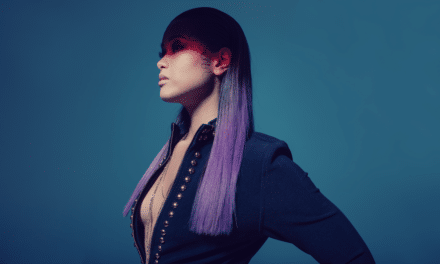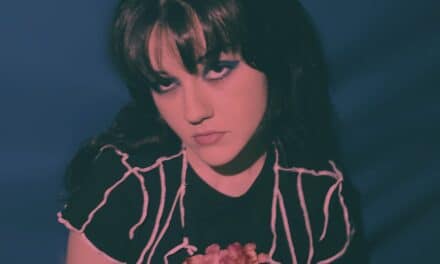There’s a charged hush before a scream. That tension pulses through every crack and hiss of Siichaq’s sophomore album, Catcher—a slow-burning, grunge-tinged mosaic of introspection, ephemeral beauty, and raw edge. Out August 8, this isn’t just an album—it’s a shrine for the misfits, the dreamers, and the beautifully fucked-up souls in the indie margins.
Take “Project 3”, the album’s opening dagger. It unfolds like a fever dream: fogged feedback, slacker-shoegaze minimalism, a haunting plea—“please… please…” echoed in the drift. It’s a brittle confession from someone who feels suspended in limbo, desperate for meaning amid creative inertia. As Mason—Siichaq’s real name—puts it, “I find myself, embarrassingly, begging the universe for a chance to earn my spot in the world.”
But this is no self-pity symphony. There’s humor in the fragility, and tenderness in the disquiet. The tracklist reads like a fractured diary: “A Couple Bad People,” “Cannibal,” “Life’s A Mess,” “Horse & The Heretic.” Each track lives in its own claustrophobic, lush universe. One moment you’re swimming in shimmering strings, the next you’re slammed into stripped-down banjo loops or sludgy noise rock squalls. Collaborators from Lunar Vacation, Faye Webster’s Annie Leeth, and more add depth to Mason’s dream-weary sound.
Catcher isn’t for the polished. It’s for the restless—scratchy, searching, and rich with atmosphere. If Mundane Magazine writes for the horny, stylish, and edgy weirdos, consider this album its audio cousin: eccentric, unfiltered, and beautiful in its unvarnished humanity.
“Project 3” feels like a sonic unraveling — raw, droning, and vulnerable. What compelled you to lead the album with this track, and what did writing it help you understand about yourself?
Project 3 always seemed, to me, like the best way to introduce the album. It’s noisier than the rest of Catcher, and I think it tethers my last album to this new era quite well–it’s a nice balance, which makes it a comfortable way to bridge the gap. Admittedly, it’s also just my favorite one off of the record and I got tired of sitting on it. I was too excited to wait any longer!
Writing it felt less exciting, though. It felt pathetic in a lot of ways. I hate to beg, yet I’d found myself begging the universe constantly for… something. I wasn’t entirely sure what I was asking for, but I wanted it badly enough to think about it obsessively. It got to a point during the writing of Catcher where I felt like I was going insane. Writing Project 3 helped me understand and verbalize why I had become so desperate and obsessive. I realized that I was scared, and I was insecure, and I was convinced that if I pleaded adamantly enough, the earth or god or the universe or somebody would tell me that I was doing the right thing, that I was working hard enough.
I don’t think the song is pathetic anymore. I understand why I had to write that song, I understand how I felt in the moment and how intensely it impacted me, and now, most importantly, I understand that my faith in my work is enough.
You’ve said the silence between periods of creative work can be more frightening than the chaos of creation. How do you manage those “waiting” periods without losing momentum or confidence?
For me, insecurity is built into the process of creation, and so is waiting. The way that I cope with those in between times is by finding another avenue where I can be productive in some regard. I guess it’s about staying busy, which I’ve gotten maybe a little too good at lately. The waiting periods that I had to sit through during the making of Catcher taught me that music is a multidimensional art form. To engage people, you need more than just the songs (I admit this begrudgingly and with many objections).
So, when there’s down time between making the actual music, I focus on the other aspects of being an artist who’s participating in a capitalist industry–-I work on updating merch, setting up shows/tours, getting gear sorted out, planning music videos, editing posts for social media… It’s the ‘business’ side of musicianship that I ignored out of disdain for a long time. During the making of Catcher, before I gave much thought to the ‘business’ responsibilities, I coped by reading and watching movies and running kind of obsessively (oh, and begging the universe for some validation, which is what Project 3 is about). But it’s different now, because I’ve found a way to turn waiting into more momentum for when the music is finished. That’s what I like to tell myself, at least, but maybe I’ve gotten way better at making up tasks so I feel like I’m still doing something useful.
The album title CATCHER nods to Catcher in the Rye. What resonated with you in that book, and how does it parallel your own coming-of-age journey?
Let me preface by saying, when I read The Catcher in the Rye, I was already an adult and unaware of its decidedly controversial reputation. I’d started attending school online in 7th grade, after being told I’d have to do that or repeat my entire 7th grade year. I’d missed too much school because I went to a wilderness therapy program, so taking online classes is how I ended up missing out on most of the discourse around classic works of literature.
So later, when reading The Catcher in the Rye with a mostly developed brain, I was struck by the paradoxical voice of Holden Caulfield–how he could be so immature and emotionally stunted at times, and then offer profound and insightful observations about the world on the next page. Holden’s contrasting perspectives and behaviors mirrored my own as a kid in a way that I hadn’t encountered in a literary character before.
Throughout the book, Holden is desperately lonely, yet he sabotages every opportunity he has for connection. He struggles to express himself healthfully or productively. He spends most of the book looking for ways to shed his youth, to be perceived as older and engage in ‘adult’ behavior. At the same time, he views the adult world as phony and a total sham, and idealizes innocence and childhood.
I experienced all of those same cycles as a child, and some still now. Also, it’s implied that Holden is institutionalized after the events of the book, and I’d never read literature from the perspective of a young person in an institution before. It was comforting to see the parts of myself that I’d felt so ashamed of for so long take shape in a very popular book and character. People interpret Salinger’s writing in lots of ways (some of which are entirely unfair), but The Catcher in the Rye will always be special to me for the ways it represented my ‘ugliest’ traits and somehow made them feel much lighter to carry around.
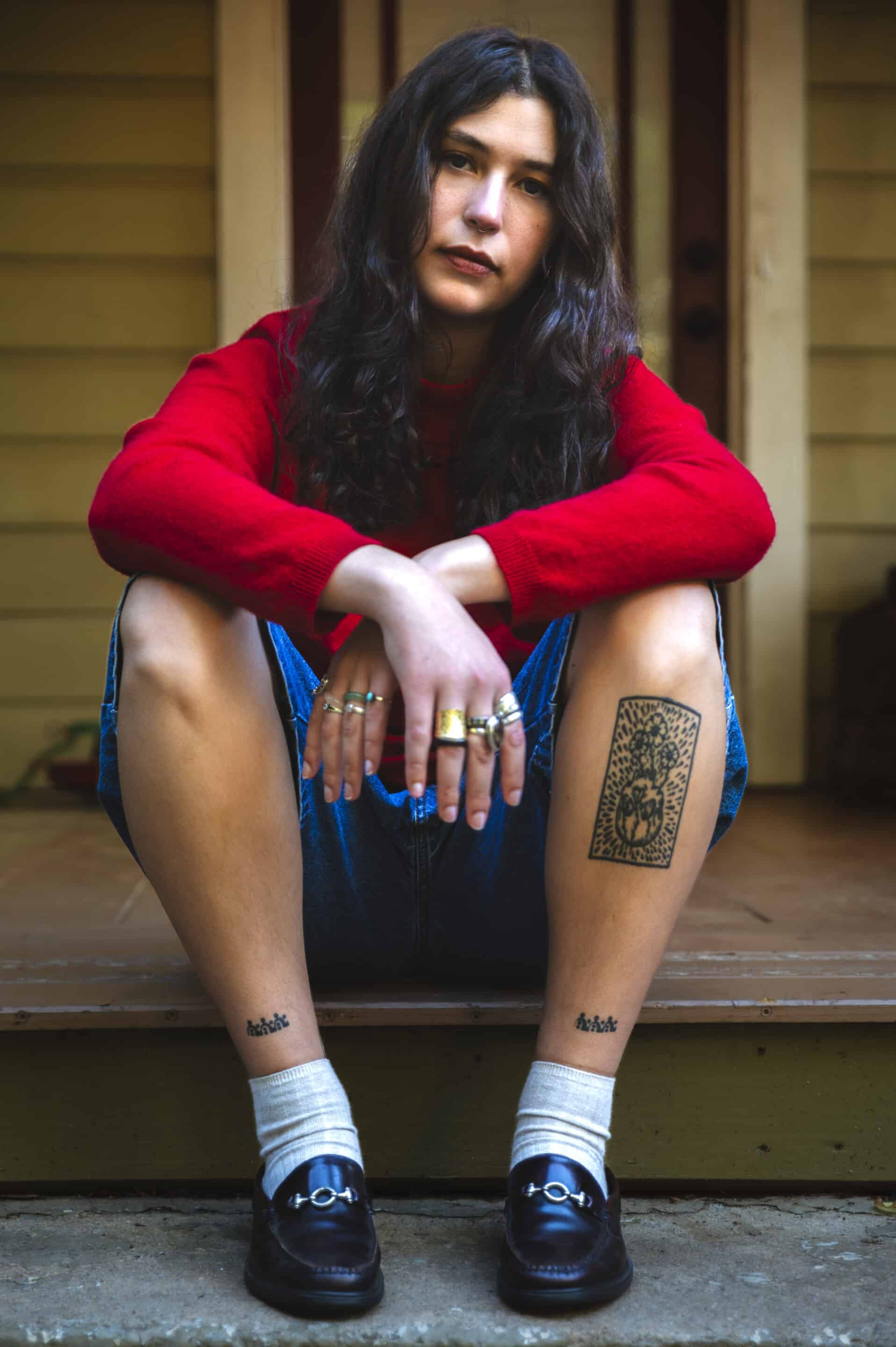
You’ve described “Project 3” as almost embarrassing in its desperation — yet that honesty feels like the song’s superpower. How do you navigate sharing work that feels so emotionally exposed?
The truth is I just don’t think about it too much. I don’t exactly have control over what I write, so I just say what I say and then if it feels honest, I finish the song and move on. Plus, I don’t have a massive audience, so there’s comfort in that perceived privacy. However, I do think that it’s my job as an artist to be ready and willing to expose everything for the sake of my work. Pretentious, right? But I don’t separate my life from my music because music ultimately is my life. I live to create music, like I’m collecting data to publish in a study. What kind of scientist would lie about their research? A bad one. That’s how I feel about my music.
CATCHER spans such a wide sonic palette — from shoegaze to noise rock to banjo-backed folk. How do you approach genre in your songwriting? Is it instinctive, intentional, or a mix of both?
I have to admit it–I hate genres. It’s probably because I don’t understand them or what fits into what category and I don’t like feeling ignorant. It’s also because concerning myself with genre is the quickest way to put myself in a creative prison. I’ve tried so many times to write a traditional punk song, a traditional folk song, a traditionally shoegaze song, and I don’t think it has quite literally ever worked for me. I spent years feeling disappointed in myself for not being able to pinpoint and implement the elements of certain genres into my music. When I finally understood that it wasn’t going to happen, I started Siichaq with the intention of being a catch-all for whatever genres I accidentally churn out. I’m still regularly frustrated with the way I write because it feels like something I have very little control over, but at least with this project now, I can make whatever comes naturally and dump it out to the world under a single name. So anyway, genre is always a mix of intention and instinct starting off, and then instinct inevitably wins out every time.
You grew up as one of the only Native or non-white kids in your environment. How has that experience shaped your musical identity and storytelling lens?
Growing up as one of the only non-white kids in my community instilled a lot of insecurity in me. I didn’t know a single Native person that I wasn’t related to, and most of my Inuit family members still live in Alaska. Being that I had extremely limited exposure to other Inuit people (due to my environment and a staggering level of underrepresentation in mainstream media), I always felt down on myself for having darker skin, a different eye shape, and a different nose than the other kids at school. Passing comments made about those differences, including a slur or two, didn’t exactly help matters.
As I grew older and more educated, I began to accept and love the traits that connect me to my heritage. When I realized that existing proudly as an Indigenous person is its own form of resistance, I knew I wanted to use my Inuit name as my artist name. My musical identity has been transformed by the way that my attitude toward my non-whiteness has evolved. I had to struggle with my personal identity as an Inupiaq person to understand why it’s necessary to claim it proudly within my musical identity. Now, I’m able to have conversations with people about Indigenous Alaskans when they ask about the origins of my artist name. I can use music to speak about the things that deeply impact me, like politics and human rights and my insecurities, all of which I would not have had the confidence to do had I not worked through my previous inner struggles with identity.
There’s a distinct tension between the introspective and the theatrical in your sound. How do you see your personality — chipper on the surface, deep underneath — showing up musically?
It’s not usually intentional, but I do have a tendency to write some cynical lyrics over major-key, upbeat songs. I can tend to be like that as a person, kind of self-contradictory, but never with the intention of being disingenuous. Musically and in life, it’s about finding ways to balance honesty and positivity. The best example of this on Catcher is probably I Keep Getting Sicker. It’s a song that’s easy to bob my head to but is actually about the cyclical nature of trauma and mental health and how that deteriorates physical wellness.
I hope and try to be a mostly positive person, but I don’t shy away from sharing the reality of mental illness and the industry built up around it. That bled into this album because I didn’t want to make ‘sad’ music but I needed to be unwaveringly truthful about my interior life (which is not always uplifting or pleasant).
You’ve collaborated with members of Lunar Vacation, The Slaps, and artists like Annie Leeth. What was it like building this sonic world alongside friends and collaborators? Any sessions that really surprised you?
Okay I have to get real earnest and long winded for a minute. I loved Lunar Vacation in high school, and still do, obviously. So, when I started working with Ben from Lunar and Evan, the other half of Hummingbird Recordings (and one of the greatest people in the world), I knew they would execute their jobs masterfully. What I never could’ve anticipated was their enthusiasm to far exceed the expectations of their jobs in order to guide, encourage, and nurture this project.
I’ve said it a million times over, I get insecure and doubtful constantly, especially during the recording process. Ben and Evan never once failed to pick me back up and create an environment where I felt comfortable to stray from my original ‘plan’, bounce wacky ideas off them, make mistakes, ask questions, and, importantly, exercise complete control over final decisions. They got me through some rough days by being endlessly patient and kind, but also efficient and decisive.
On top of that, they both have incredible minds for cohesion and crafting a sonic landscape, something that was basically entirely new to me. They broadened my understanding of what all goes into creating a complete body of work and I can say with absolute certainty that Catcher would not be half as good as it is without their contributions. That’s not to mention the love and care that Rand, Maggie, Connor, and Matteo put into it too. They showed up, sometimes within the hour, to brainstorm new parts and play whatever instrument was needed. I could not have done it without them.
There are so many moments from those sessions that stand out as turning points or surprises. The day that comes to mind immediately is the day that I met Rand. As the story goes, Ben, Evan, and I had been working on A Couple Bad People. While listening to a rough mix of it during a much needed post-studio shower, I couldn’t shake the feeling that there was something missing. I went back to Hummingbird the next day and told Ben and Evan that I wanted a male vocal on the entire track. Ben and Evan sent the song to Rand and with no second thought, Rand was on board.
It takes three seconds of knowing Rand to understand that he has an endless well of passion for music. He showed up with an infectious enthusiasm and his love for the process of making art was palpable. He sang the song perfectly and stuck around to write a guitar part that is still one of my favorite things to listen for when I hear ACBP back now. The surprising thing about that session is actually two things: 1) I loved and genuinely felt proud of something I’d made…for the first time in my life, and 2) Rand’s continued collaboration continued throughout the rest of the record.
I never would have thought that a stranger, with no vested interest and probably much better things to do, would be so excited to work with me on this. Rand’s talent and passion shaped Catcher immeasurably.
As for working with Annie Leeth, it was a dream. Ben recommended Annie, so I messaged her the song and she agreed right away. I didn’t give much instruction, considering I don’t have a clue about those instruments, plus Annie wasn’t able to come to the studio, so we just hoped for the best. Well, my god. Annie knocked our socks off. She got it back to us so quickly and she did a full-on string arrangement. The first time I heard the song with her parts added, I was walking alone in the park and stopped dead in my tracks. I had chills from head to toe, I couldn’t believe what I was hearing. She is so incredibly kind and talented and one of these days I’ll write a song just for another string arrangement done by Annie.
Getting to work with Ben, Evan, Rand, Matteo, Connor, and Maggie was the most rewarding musical experience of my life. They each brought incredible insight and talent to the process. But most fulfillingly, they are great friends and I care a whole, whole lot about them outside of music. That’s the beauty of music, and that’s why this album will forever be so much more to me than just a bunch of songs.
The chorus of “Project 3” — that repeated “please” — is almost incantation-like. What’s your relationship to the universe or fate when it comes to making music?
I have a complicated relationship with the concept of fate. What I don’t believe is that I can accomplish anything without putting care, resources, and continual effort into it. Making music is a skill to hone with time and experience. However, music is an innate passion to me and many others, and it’s hard to say what gives us that proclivity.
At the risk of sounding ridiculous, I think there are some people who are born to do it. I know that there’s no other job or hobby that could come close to fulfilling me the way that being a musician does. From my understanding, a lot of artists share this feeling, the instinctual and inexplicable drive to create that cannot be satisfied any other way. Mostly, I don’t believe in a set-in-stone fate that is predetermined and unchangeable. Yet I deeply, intensely feel that I exist to make music.
In regards to individual songs, I don’t chalk that up to fate. Every song I write feels like a fluke, especially if I actually like it, and I’m always a little nervous that I’ll never write a good song again. Doesn’t that contradict what I just said, you might be thinking. Well, yes. Like I said, it’s complicated.
The album drops in August — what do you hope listeners carry with them after sitting with CATCHER? And what’s something you feel you’ve left behind in the process of making it?
I hope listeners take away whatever they need from Catcher. Music is an immaterial world where people come seeking lots of different things–sometimes comfort, or entertainment, or connection, or representation. All I hope is that I’ve done my part in creating a body of work that I’m both proud of and resonates with people in a way that serves them. If a listener is experiencing some of the same things I’ve expressed on Catcher and they connect with it because of that, I would feel a real sense of honor to share in their journey, as corny as that sounds.
In the process of making Catcher, I shook off a lot of the fear I’d been carrying around. I had been wanting to move to Atlanta but didn’t have the confidence to leave the small, tight-knit scene in my hometown. Recording Catcher gave me the motivation I needed to take a chance on myself and trust that I’d find my place in the Atlanta scene. That process also helped brush off some of the doubt I felt about my value as a musician in general. Every single person involved, all of whom I admire profoundly, expressed absolute confidence in the material and in my ability to successfully navigate the industry. Not only that, I actually enjoy the music we made, which sounds like a ‘duh’ thing to say, but was previously foreign to me.
Catcher taught me a ton about myself and about music on the whole. I’ll never be able to thank everybody who worked on it enough for what they brought to this record and for how they encouraged me through every step of the process. I certainly left parts of my heart in every song, and so did they.

